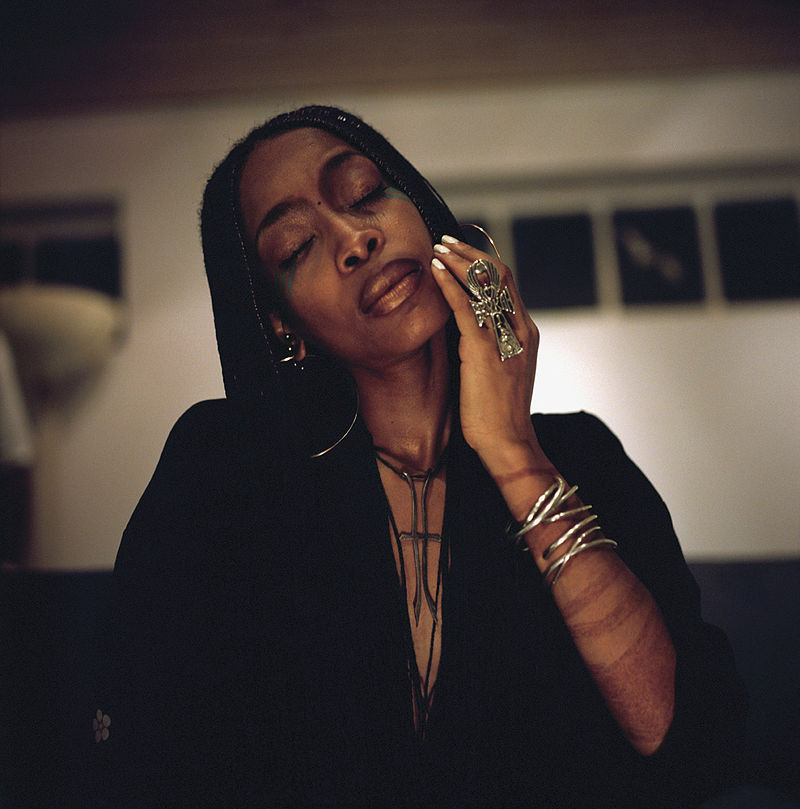
Neo-Soul (Continued)
Jill Scott, another neo-soul artist, exhibits this patchwork of genres in " Love Rain." From the start of the track, she takes us through this ethereal and somewhat cyclic combination of sounds derived from the 2000s music technology. At [00:22], the beat drops. Through [00:44], there seems to be another introduction in rhythmic prose before her story begins again [00:45-01:47]. Notice that the two-bar harmonic progressions are repeated through this section, as we've discovered in other works. All the while, you hear subtle echoes and percussive elements layered within this accompanying configuration. Interestingly, at [02:35-02:41], what seems like a shift in meter or a polyrhythmic design is a product of Scott accenting upbeats in each measure. Therefore, the pattern against the accompanying configuration becomes a cross-rhythmic element where her voice is clearly in 2/4, while the piece continues in 4/4.
The genre patchwork throughout the piece can be identified as such: First, the two-bar phrases and vocal interludes are rhythm & blues derived. Second, instead of rap, there is rhythmic prose, better known as spoken word. Inherent to neo-soul, this concept of storytelling can be linked to the oldest of African traditions and personified in the writings of James Weldon Johnson, a Black poet and writer at the turn of the last century. Listen to James Weldon Johnson reading his poem "The Creation."

James Weldon Johnson - The Creation [ 00:00-00:00 ]
Erykah Badu, along with other artists such as Maxwell (" Lifetime ") and D'Angelo (" Brown Sugar"), ushered the neo-soul genre to the forefront of hip-hop. First, as a means of an expression deeply rooted in metaphors, similes, and sometimes, mystical and symbolic references, as discovered through the content of African American Spirituals and Folksongs. Neo-soul can, therefore, be understood not only in terms of genre but also in terms of connections between peoples as it becomes "a means of transcending the limitations of our own place in the world, of constructing trajectories rather than boundaries across space" (Stokes 1994, 4).
![Nina Simone & Lauryn Hill - The Miseducation of Eunice Waymon (Full Album) [HD]](https://img.youtube.com/vi/-THq0-EDJrE/hqdefault.jpg)
Nina Simone & Lauryn Hill - The Miseducation of Eunice Waymon (Full Album) [HD] [ 00:00-00:00 ]
At this point, it may serve us well to cite a project never released: "Nina Simone & Lauryn Hill - The Miseducation of Eunice Waymon."
In it, we hear how Lauryn Hill has sampled the recordings of Nina Simone and juxtaposed her compositions into a seamless fluidity of time and soulful expression and commentary.







